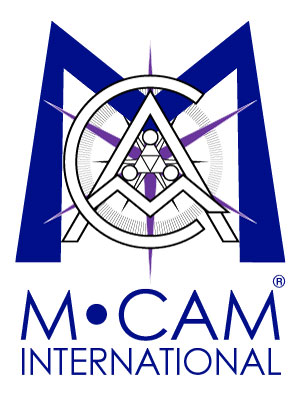New company seeks to put price on the ‘intangible’
Date: Wed, 1999-12-01
By: Reed Williams Observer Staff Writer December 1-7, 1999 An entire graveyard of assets exists, buried in banks all over the world. And there is a new scavenger right here in Charlottesville, hungry to scoop them all up — to buy the assets from banks and sell them. M·CAM, Inc., a progressive new Charlottesville corporation which spun out of Mosaic Technology, Inc., may have pioneered the first systematic value determination model for intellectual property (IP), to put a price on assets once characterized as “intangible.” “We look at the world a little differently than most people do,” said David V. Ferron, director of bank services for M·CAM, which launched in January, 1999. When an entrepreneur goes to a bank looking for a loan, the bank needs to know that the borrower has collateral that it can lend against. If there appears to be no such guarantee, a bank would typically refuse the loan request. This is where M·CAM comes in. The principals of the firm, who stress that their clients are banks, attempt to establish that the entrepreneur has valuable assets that the bank can lend against, even if it does not have conventional collateral. These assets could be patents, trademarks, copyrights, distribution rights or any other items that may be overlooked or given away if their values are not understood. “We’re creating the gold standard as we go,” said Chief Executive Officer Dave Martin in an interview at the firm’s downtown office. “There’s no one else doing it.” This method of thinking, creatively looking at ways to revitalize discarded or unrealized assets, is relatively new and is sure to draw puzzled looks and tickle the tense nerves of stiff-necked bankers, who know that if a loan goes bad they have to collect payback. “I think you’re talking about new territory,” said Mark Giles, president of Virginia National Bank and board member of the Virginia Piedmont Technology Council (VPTC). “Bankers are very used to having tires that they can kick and warehouses that they can walk into.” So M·CAM backs it “appraisal” with hard cash. The firm agrees to buy an asset if the company defaults on loan payment. The comprehensive process of valuation, Martin explained, begins with a classic appraisal. The firm then puts the asset through a filtering process to consider environmental effects on the IP in a specific sector of business and then predicts the possibilities of how the asset would work in other sectors. Every other appraisal model, said Martin, just looks in the rearview mirror. “We start with looking back — where every appraisal model stops,” he said. M·CAM must then predict what will happen tomorrow, by anticipating the “prospective passage of time”, explained Martin. The process is currently 80 percent automated and 20 percent manually done, Martin said, adding that he hopes to bring that number to 90 percent automated by April, 2000. The company looks to expand radically by increasing the number of IP sales it does, and in terms of forging strategic partnerships with insurance companies to help offset risk associated with purchase obligations. Martin said M·CAM looks to move into the multi-billion dollar market of high tech commercial lending. Tom McCrystal, founding chairman and board member of the VPTC, said that M·CAM offers a “great” service, as it addresses the “critical” problem that banks need to better measure their risk and know how to value collateral. “Some of the things that M·CAM is doing to address the valuation issue is going to have a significant impact in tech business, not just here, but all over the place,” said McCrystal. “Potentially M·CAM could end up with global impact. That’s exciting.” Barriers are coming down, he said, as we move into the next century. “The nature of banking is changing for evermore,” said McCrystal.


Sorry, the comment form is closed at this time.